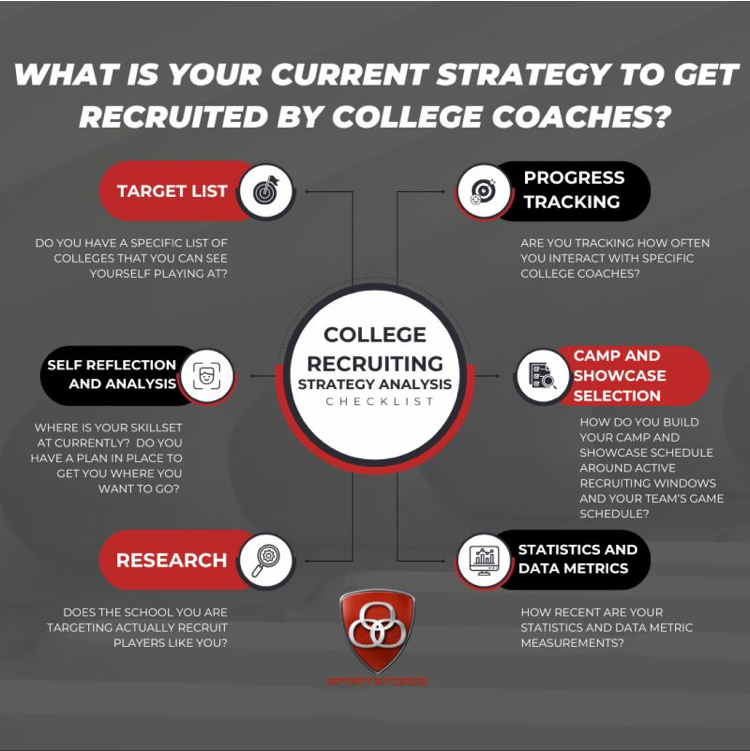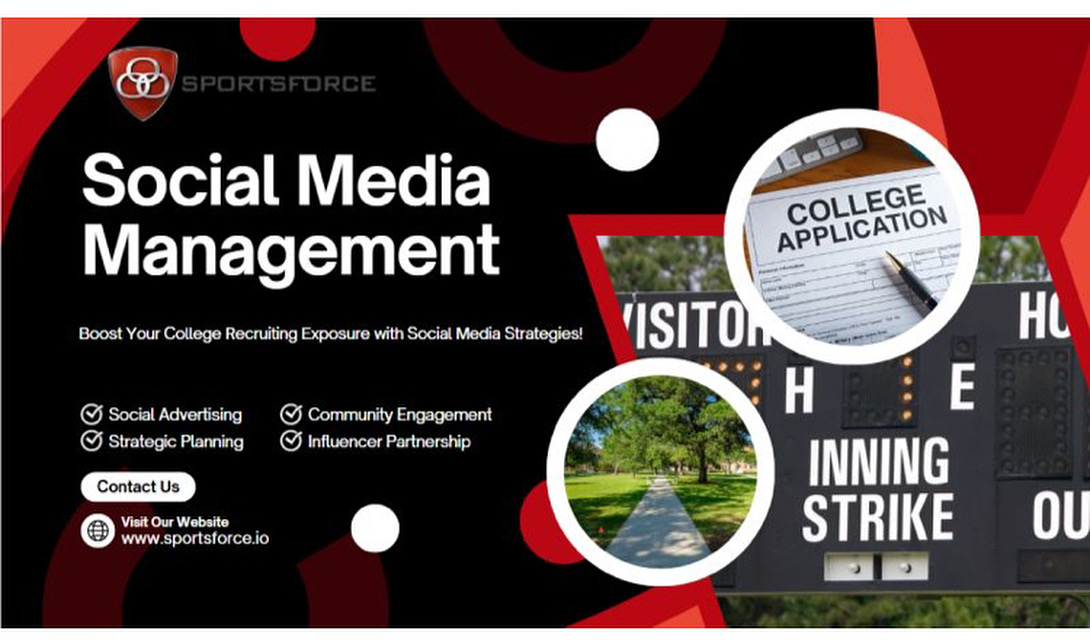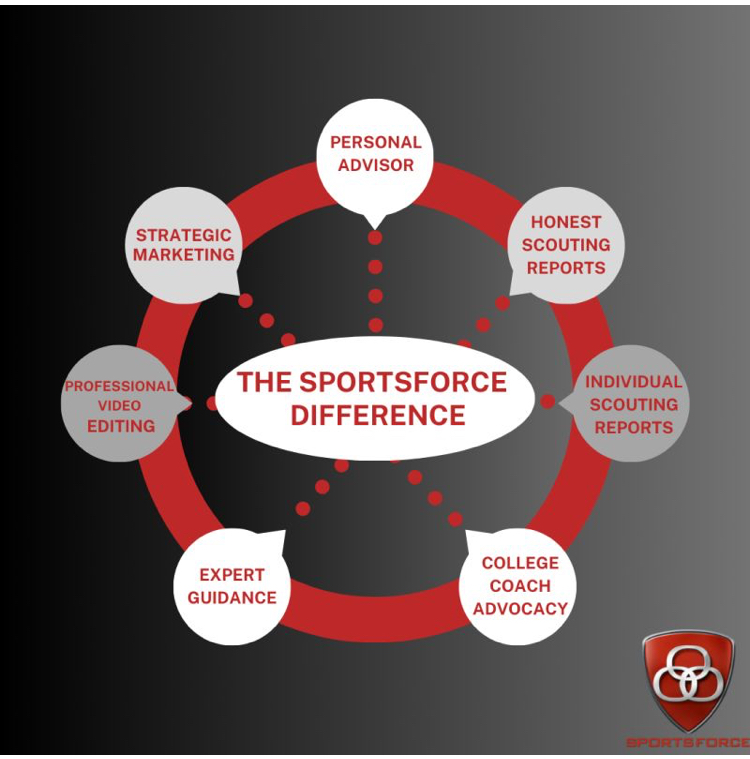An Insiders Perspective to the Player-Coach Interview
Student-athletes want to make a good impression on a prospective college coach. Sometimes, anxiety takes over during that first in-person meeting, and the student works too hard to impress the coach. During the first meeting, students need to step out of themselves and become a strong observer and listener. For example, if a student is in the coach's office, they should be mindful of the surroundings. The coach may have photos of his/her family, awards, diplomas, etc. Ask probing questions about things observed. Coaches have larger egos that student-athletes. Allow the coach to brag about the program and his/her accomplishments. Questions should be open-ended. Try to draw a connection when the opportunity presents itself. Maybe the coach has fishing photos on the wall. Look for a way to relate personally. Focus on establishing a relationship instead of trying to sell yourself. Do not waste the coach's time by asking questions that you can find out on your own. Do not ask the coach if he/she plays freshmen. I know high school coaches and club coaches who tell their players to ask the coach this question. It's a terrible idea. You can find that information very easily on your own. Every college baseball team has its own web site with stat data. If the roster demonstrates that not one freshman got an at-bat, then your question is answered. If the coach asks you about your strengths and weaknesses, focus on your strengths first. Make sure you talk about more strengths than weaknesses. Choose a few strengths and just pick one weakness that you are working. Turn the weakness into a goal opportunity. Talk to the coach about that goal and what key results you plan to achieve to accomplish your overall objective.
Coach Mike VanderBunt
Posted by Mike
Monday, May 12, 2025 9:50:00 AM
Move on to Another Option
Some high school pitchers believe that they must have three pitches in their arsenal to throw at the college level. Although, it certainly helps to have three effective pitches, it does not help to have an ineffective pitch. Pitchers need objective information from coaches to decide if a pitch is helping the pitcher or hurting the pitcher. Preferably, high school pitchers want this information from a high school or club coach, not from a college coach making a visit to perform a player evaluation. Pitchers have options. They can gravitate toward the pitches that are performing well, or they can spend time working on the pitch or pitches that are ineffective. Sometimes it's best to just move on from a particular pitch rather than beat yourself up over it. Determining whether to keep a pitch or toss it should be data-driven. This information should include how often balls and strikes are thrown in a game. It should include velocity and opponent's batting average per pitch. If a pitcher is not able to throw a pitch at 100 percent intensity, then it may not be an appropriate pitch to have in the arsenal. If a pitcher has a couple really effective pitches, such as a 2-seam fastball and a curveball, it may pay to focus on improving or perfecting quality of those particular pitches. Whatever a pitcher chooses to do, evaluation should be part of the process. Take feedback constructively and focus on the positives rather than the negatives.
Coach Mike VanderBunt
Posted by Mike
Tuesday, June 3, 2025 2:16:00 PM
From 1-20 to 12-10
The Rhinelander Hodags High School baseball team advanced to the second round of regional play, defeating the Amery Warriors by a score of 6-0 at Stafford Field in Rhinelander last night. Rhinelander was the 7-seed, and Amery was the 10-seed. Rhinelander advanced to take on the 2-seed St. Croix Falls Saints on June 3rd in St. Croix Falls. Rhinelander finished last year with a 1 and 20 record. The team's only win came on the road at Northern Pines. This year, Rhinelander has found a way to turn things around, finishing 2nd in the Great Northern Conference, one game behind Mosinee. After winning the first round of regionals, Rhinelander improved to 12 and 10 on the season. Their pitching staff, led by Connor Rappley, Dylan VanderBunt, and Jackson Waydick, went into the post-season with a combined 2.24 earned run average. Rappley pitched a perfect game against rival Medford last week and only gave up two hits in 6 2/3 innings pitched last night against Amery. VanderBunt led the conference with a 0.72 earned run average in 20 innings of relief pitching. Rhinelander has leaned on pitching and defense to win games all year and hopes to continue its success next week on the road. Congrats to the Hodags on an incredible turnaround.
Coach Mike VanderBunt
Posted by Mike
Friday, May 30, 2025 8:53:00 AM
LRSC Breaks Conference Wins Record
In his first year as the head skipper for the Lake Region State College Royals baseball team, head coach Steve Anderson set the program's new benchmark for conference wins. The Royals finished 11-13 in the Mon-Dak Athletic Conference, tying Bismark State College for 3rd place and finishing one win behind Dawson Community College (12-12). Lake Region was only 4-22 in conference play last year before Anderson stepped in to lead the team. Anderson, from Eagle River, WI, attributes culture as the number one factor for the team's drastic turnaround. Anderson is a transformational coach who focuses on relationship-building. He believes in teaching a positive mindset and growth mentality. Congrats to Lake Regional State College and Coach Anderson. It would be wise for the Mon-Dak Athletic Conference teams to keep LRSC on the radar next year. If you're interested in playing college baseball and you think the junior college route might be the right fit for you, check out Lake Region. Right in the heart of Devils Lake, ND, it's a beautiful place to live and surely a baseball program on the rise.
To read more about LRSC breaking its conference wins record, check out the detailed story in the Devils Lake Journal. Lake Region Breaks Conference Wins Record
Coach Mike VanderBunt
Posted by Mike
Tuesday, May 27, 2025 1:29:00 PM
Playing at the Collegiate Level
Baseball is a sport that requires a significant amount of mental preparation and practice. It is a sport that is not for the faint of heart. Only in baseball is someone considered to be good at their craft when succeeding thirty percent of the time. Baseball players must embrace failure and learn from it, or they will not last long. Playing college baseball will teach players many things that they can take with them throughout their working careers. Through baseball, players learn to lean on and support teammates, and they learn to become independent. Baseball can be an emotional roller coaster, like other areas of life, but it can equip people with the skills to overcome adversity, manage emotions, and achieve goals. The next several blog posts explain how a baseball program can help a student-athlete grow and mature into a highly productive member of society that can impact thousands of people throughout a lifetime. The following character traits and skills are developed through the participation of a baseball program: responsibility, work ethic, process-driven, teamwork, and trust. Tomorrow's blog post will emphasize growth through responsibility.
Coach Mike VanderBunt
Posted by Mike
Thursday, May 22, 2025 9:39:00 AM
How will you know which one to choose?
With overall college enrollment down, schools are using athletics to narrow the gap and bring more kids to their institutions. Some schools are carrying as many as 55 baseball players on their rosters. Years ago, a typical roster for a DIII school was 35 players. When determining the right athletic fit for you, it is critical to find out several things about the baseball program when you make your official visit and talk face-to-face with the head coach. If you are invited for a personal visit and tour, it is very important to ask the coach how many players he plans on carrying on the roster. If he gives you a number around 55, you need to ask him what he plans on doing with the extra 20 players. Here are some other questions you can ask the coach to make sure that this school is a good athletic fit for you: Are there going to be JV games? Do all 55 players attend practices? Do you plan on red shirting or gray shirting any freshmen? Is there a chance you may cut any players that you recruited to reduce the roster size? How many freshmen received playing time last year? Don't get caught up in the hype of being recruited. Do not make an impulsive decision if the coach offers you a roster spot during your visit. You must do your homework and ask these important questions. Also, if you can get data about the players that are starting, you can then compare and contrast that to your own vitals and data. If one of your goals is to become the starting centerfielder, find out the current centerfielder's 60-yard-dash time. If his 60 time is 6.6 and your 60 time is 7.0, you're probably never going to touch the grass in centerfield at that school. If the right fielder's throwing velo is 90 mph and yours is 80 mph, you're probably not going to get a lot of pre-game reps at that position unless you can really hit. If playing time is a determining factor for choosing a school, you must collect this information and be realistic. Identify schools you know you can compete for playing time. If you're not sure and are having a difficult time determining, that's a service I can provide you. I've done several hundred player evaluations this year alone. At Sportsforce Baseball, we have a scientific approach to player evals that can help you determine where you have the greatest opportunity to compete for playing time. Click on the Are You College Ready? link to get started.

Posted by Mike
Wednesday, May 21, 2025 7:22:00 AM
Give Coaches and Your Son Breathing Room
Parents and guardians play a huge role in the recruiting process. They play a significant role in the success or lack thereof of student-athletes. Students need the support and active participation of parents/guardians to help make good decisions, stay positive, and maintain focus. However, when parents become too emotionally invested, they can be overbearing to the athlete and coaches. Although overbearing parents may have good intentions for their son, their actions are distracting and cause a lot of unintentional anxiety for the athlete. In high school baseball, coaches are very accessible. It's easy for parents to approach a dugout. It's one of a very few sports where parents attempt to gain access to the players during the game. Even reaching in the dugout to hand an athlete a Gatorade can be distracting. I've seen parents trying to call pitches from the stands during games. When there are college coach evaluators at the game witnessing this type of behavior, it absolutely hurts recruiting opportunities. College coaches do not want unsolicited advice from parents, and neither do high school coaches, especially in the middle of a game. Parents want to see their kids play, and they believe they know what's best in order for their kids to succeed. Parents who were youth coaches have a tendency to believe they know enough about the game to coach at the varsity high school level. They can be quite opinionated about coaching decisions, vocally expressing their opinions with their face pressed up against the fence in the middle of an intense conference game. College coaches will avoid recruiting players who are micromanaged by parents. At that level, players need to have autonomy and independence. Coaches need to know that their roster is made of players with high self-esteem and sense of self. Coaches are able to recognize patterns in parenting behaviors, which trigger red flag reactions. They know the characteristics of overbearing parents and the impacts that can have on their programs and time management. The athlete may be extremely talented, gifted, and smart. If that caution light goes on due to the behaviors of parents, the recruiting process comes to an immediate halt, and an opportunity is lost.
Coach Mike VanderBunt
Posted by Mike
Tuesday, May 20, 2025 8:20:00 AM
Playoffs are around the Corner
In Wisconsin, the first round of high school regional playoffs is in two weeks. Although baseball is a game with personal stats, accomplishments, and aspirations, now is the time to put those things to the side. The only thing that should be on a player's mind right now is what can I do to help my team win, getting us the best seeding possible and preparing us for what lies ahead. If your main concern is going 2 for 4, then your mindset is not in the right place. You may need to "run through a fence" to get to a ball. You may need to dive headfirst to come up with an inning-saving play. A sacrifice bunt may be a pivotal moment late in the game. Your thought process must be, "what do I need to do to help my team win tonight." This is also the time of year you will see evaluators at the game. For most colleges, the spring season is over. Not every college team gets a crack at the post season like high school baseball in Wisconsin. There will be player evaluators coming to games now and through the post season. Now is the time they will be able to see the intangibles that you bring to your team and your game. Focus on what is important, winning the game and helping your team any way you possibly can. If you do that, good things will happen to you and your team. Those things will not go unnoticed.
Coach Mike VanderBunt

Posted by Mike
Monday, May 19, 2025 7:09:00 AM
Market Yourself with a Plan
I've been seeing a lot of good things on Twitter (X) and Instagram coming through from high school and junior college baseball players. Guys are putting out quality hitting and pitching videos, including stats from a game or recognition from a newspaper, etc. Players are even recognizing each other's accomplishments. The one thing I think players should consider is putting together a strategy or plan to distribute information. Sometimes posts seem too random. Stick to a theme, as long as it doesn't seem too arrogant or cocky. Make sure to include video of your workouts. Get clips of squat workouts or other explosive training. Get clips of you doing other things besides baseball. Posts about volunteer service, leadership training, and teamwork and great ways to illustrate qualities of character or other intangibles that are difficult for a coach to gauge in a one-hour meeting. Many players have been great with the baseball community posts, however, don't forgot you are part of the community in which you live. Demonstrate through your posts that you are engaged with other things besides baseball. Show indications that you are willing to put others first.

Posted by Mike
Friday, May 16, 2025 8:01:00 AM
Be Open-Minded and Reflective
It's difficult to grow and evolve as a baseball player unless you receive constructive feedback about your skills, performance, work ethic, and leadership qualities. Sometimes receiving feedback can be hard; nobody really wants to hear criticism about themselves. Sometimes it's even cringe-worthy, especially if it concerns qualities of character. Unfortunately, setting realistic goals, objectives, and key results to focus on is almost impossible if players don't collect data and receive the necessary feedback. At SportsForce Baseball, we review a student-athlete's video footage, perform qualifying interviews, and assess vitals and skills data. We'll assess a player's desire to play baseball at the college level and extract the intangibles that often go unnoticed by college coaches. You will receive honest feedback from us about where you currently stand in the college recruiting landscape. Receiving feedback not only helps recognize where players need to improve, it also reinforces all the great habits created, encouraging a baseball player to take those qualities to another level. Receiving honest feedback from trusted advisors establishes effective relationships. Sharing experiences aloud not only provides us with insights, it allows those receiving feedback a chance to reflect on the things done throughout the baseball journey.
Coach Mike VanderBunt

Posted by Mike
Thursday, May 15, 2025 9:21:00 AM
Read Between the Lines
The college baseball recruiting landscape has certainly changed over the past several decades. There are things that you need to be aware of that most people will not tell you. This blog post is going to focus on one college program strategy used to recruit players and raise money for the program. The strategy we are going to address is the single team prospect camp. Some programs host a prospect camp every year. It is an effective strategy for recruiting. However, it is also one of the main fundraising strategies used to raise money for the baseball program. Not all invites to these camps are created equal. There are athletes that receive personal invitations, and there are athletes that receive template invitations. Some players receive special attention at the camp while other players are completely ignored and not even evaluated properly. Just because you receive an invite to a prospect camp does not mean you are being recruited to play for that school. It simply means that you are for sure invited to come to the camp, pay $100, and play some baseball that day. There is no instruction at these camps. They are only collecting data. Before paying $100 for the camp, getting a hotel, and spending money going out to eat, email one of the coaches your vitals, 60-yard dash time, throwing velo, and exit velo. Ask them if that info stacks up against the current roster. If it doesn't, then that prospect camp may not be such a good idea for you.
Coach Mike VanderBunt
Posted by Mike
Wednesday, May 14, 2025 7:33:00 AM